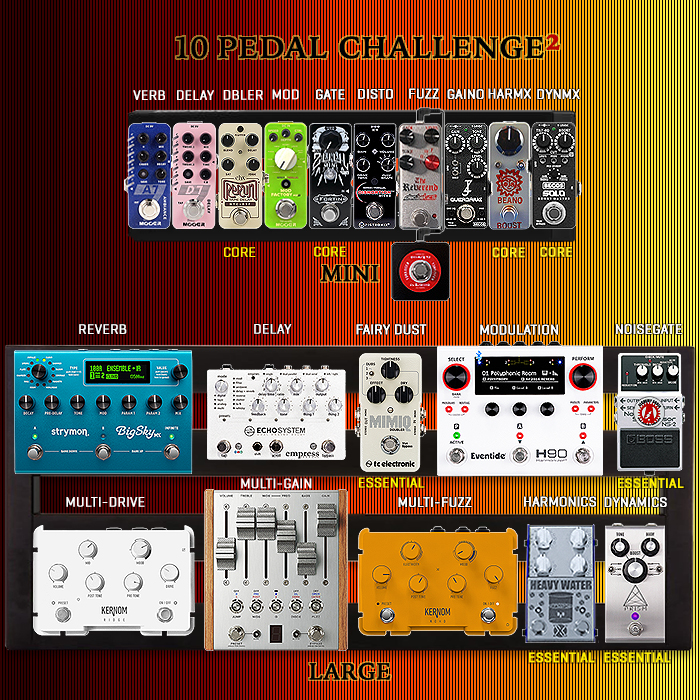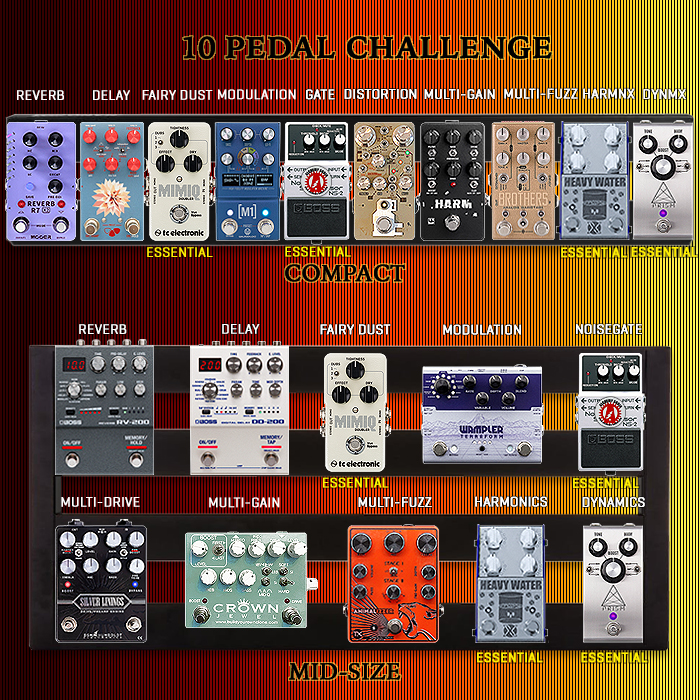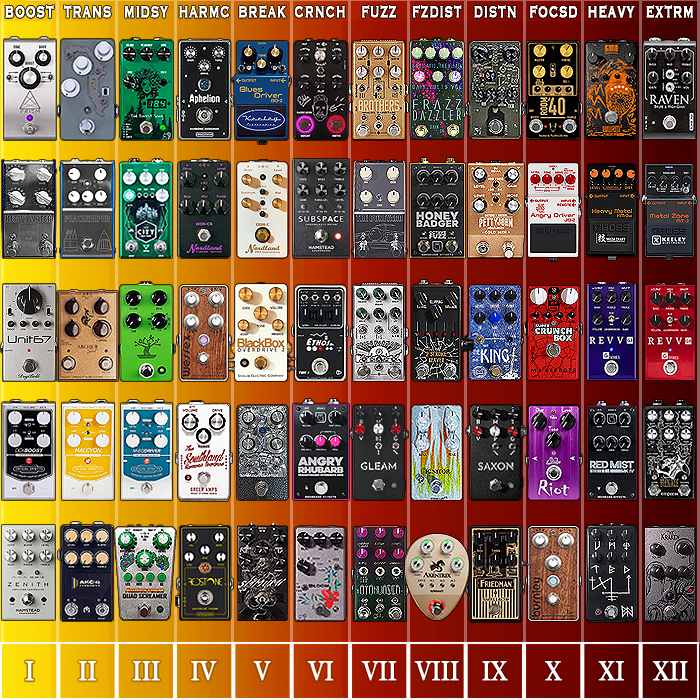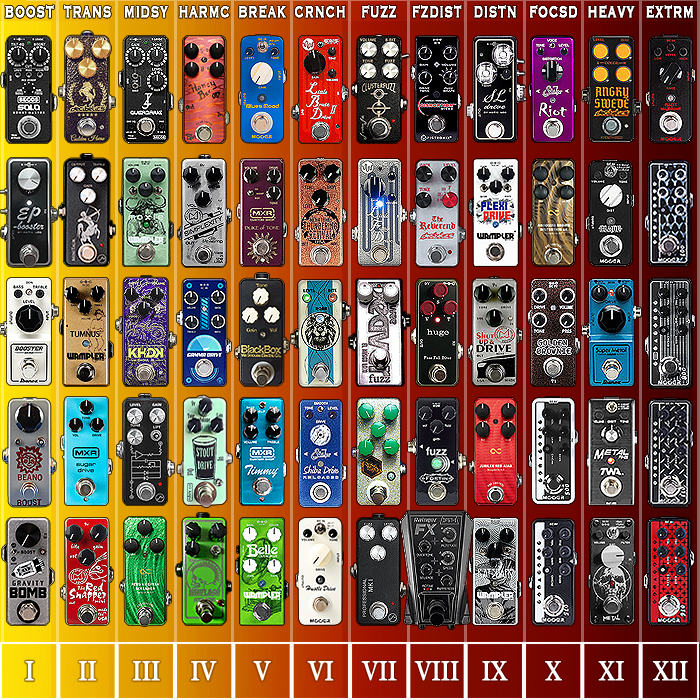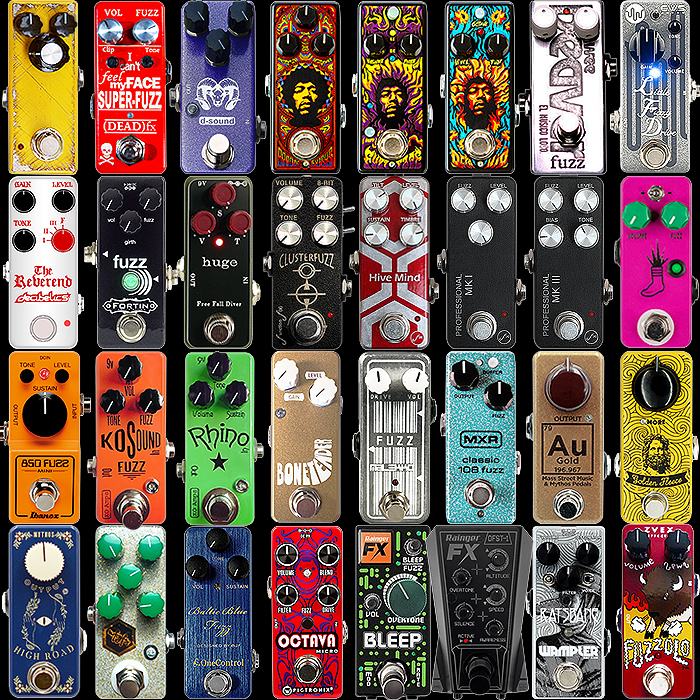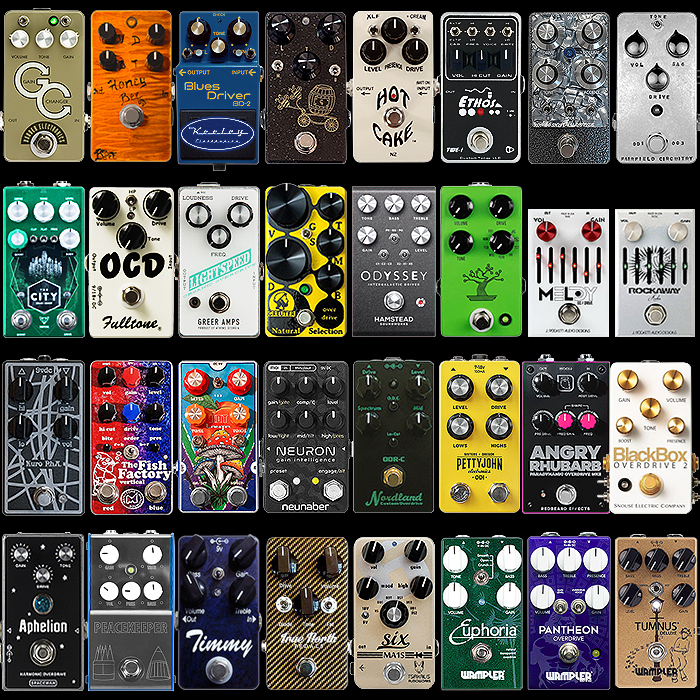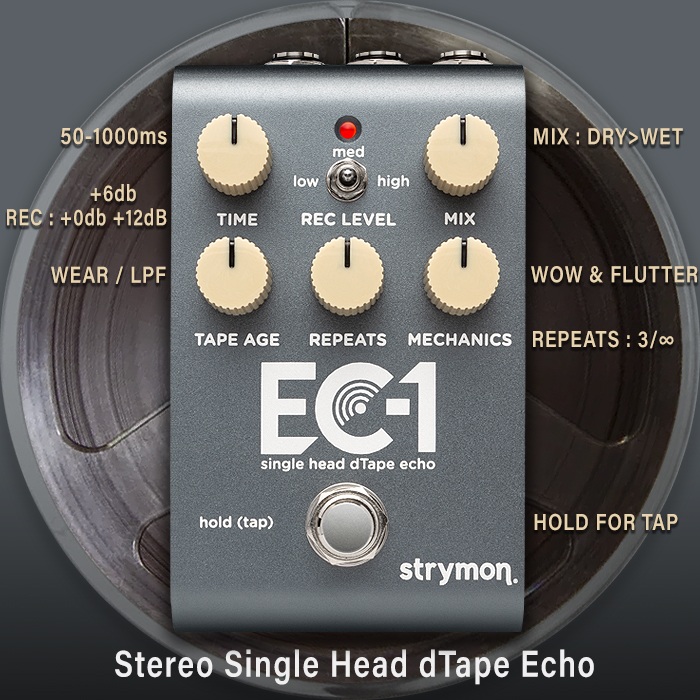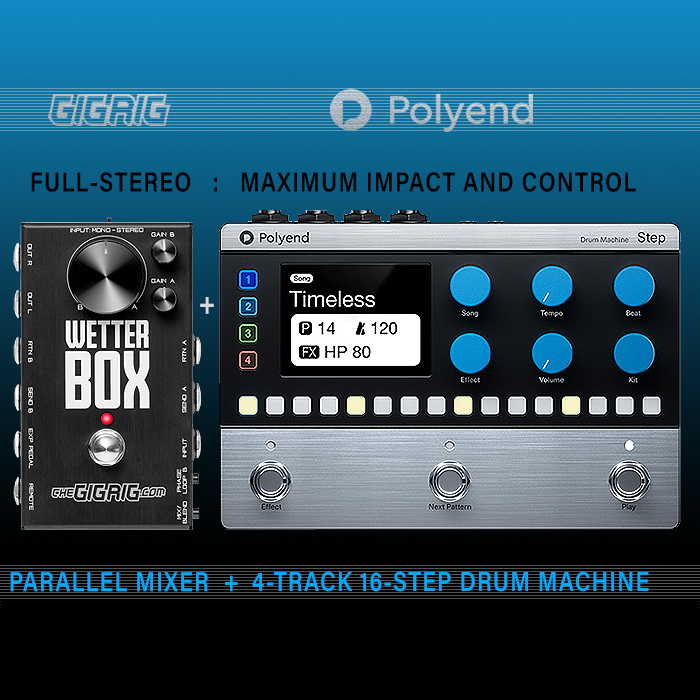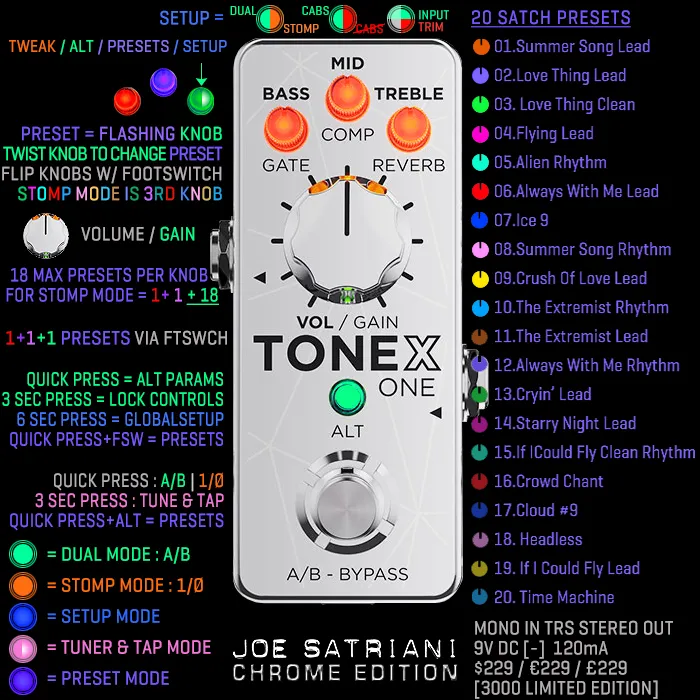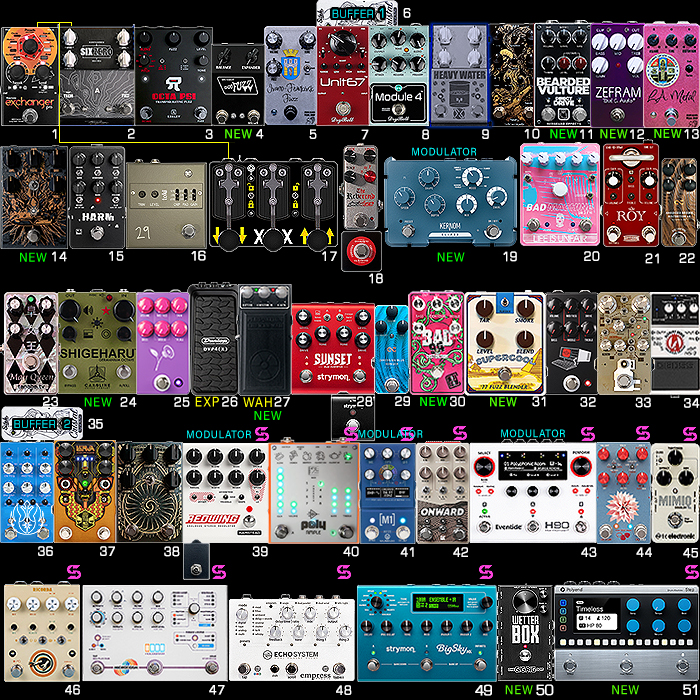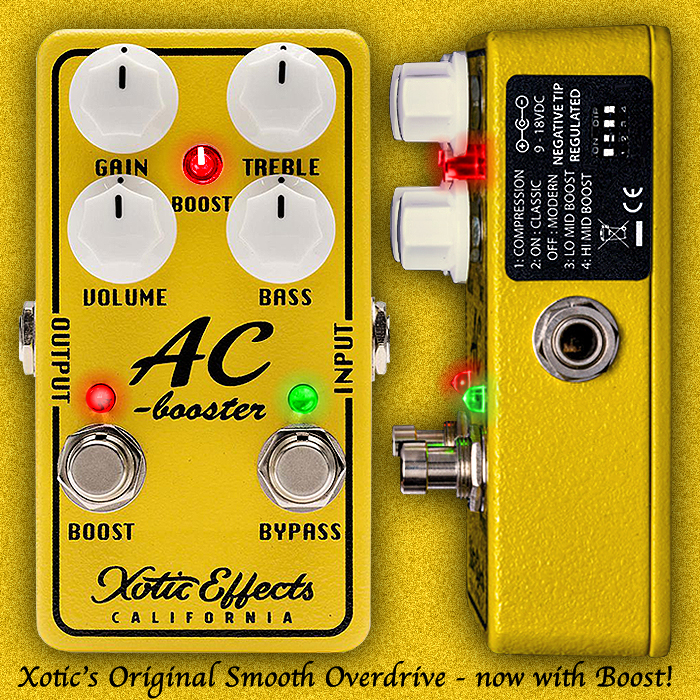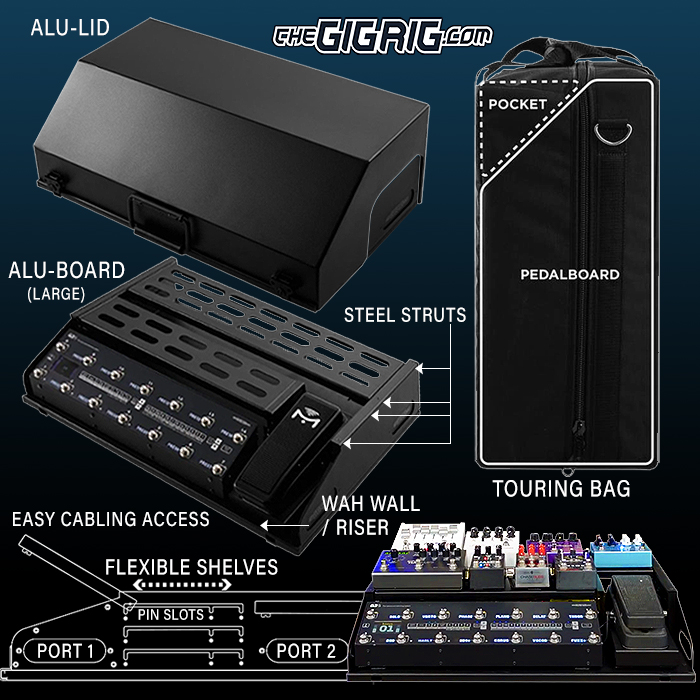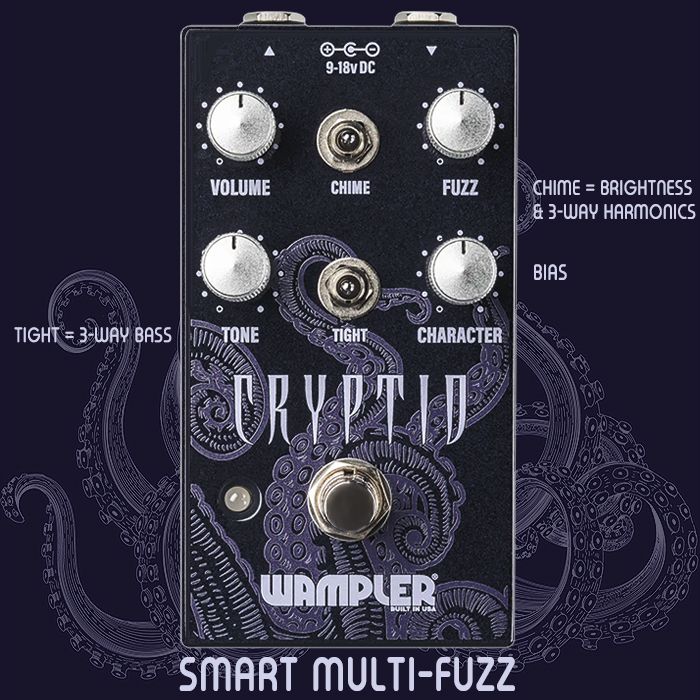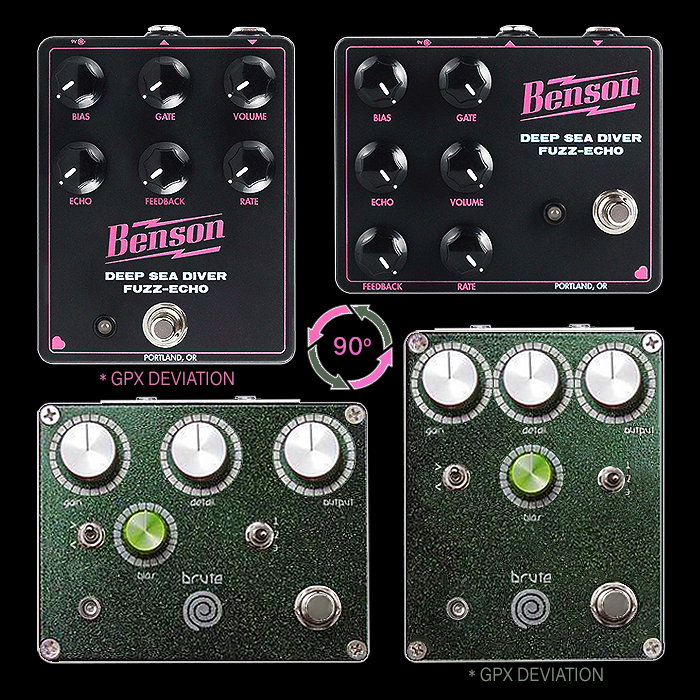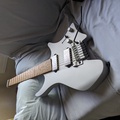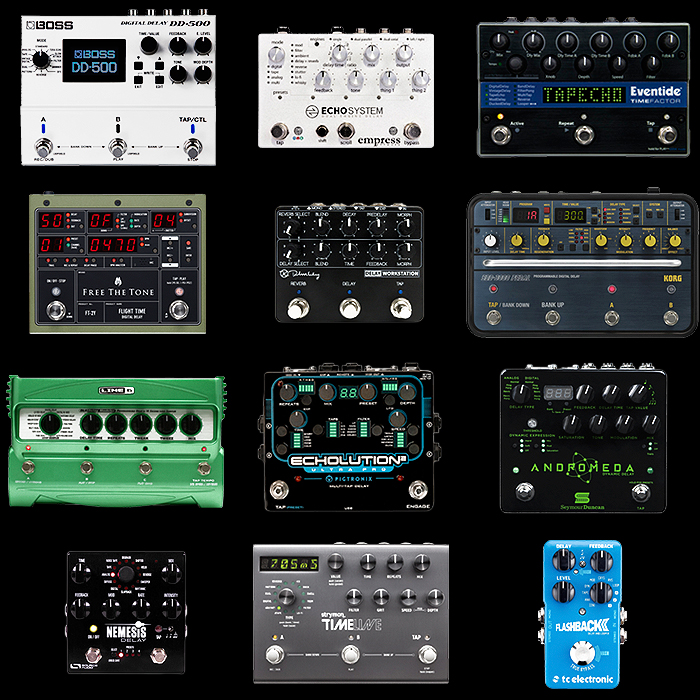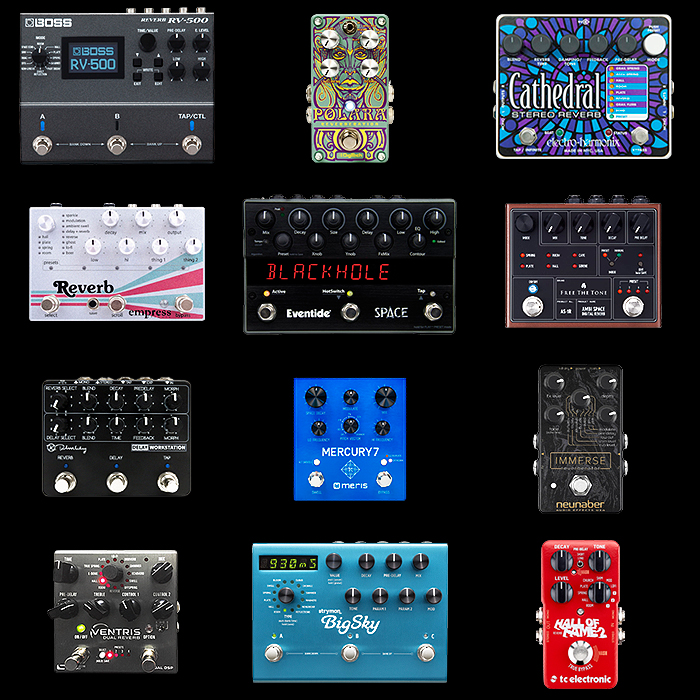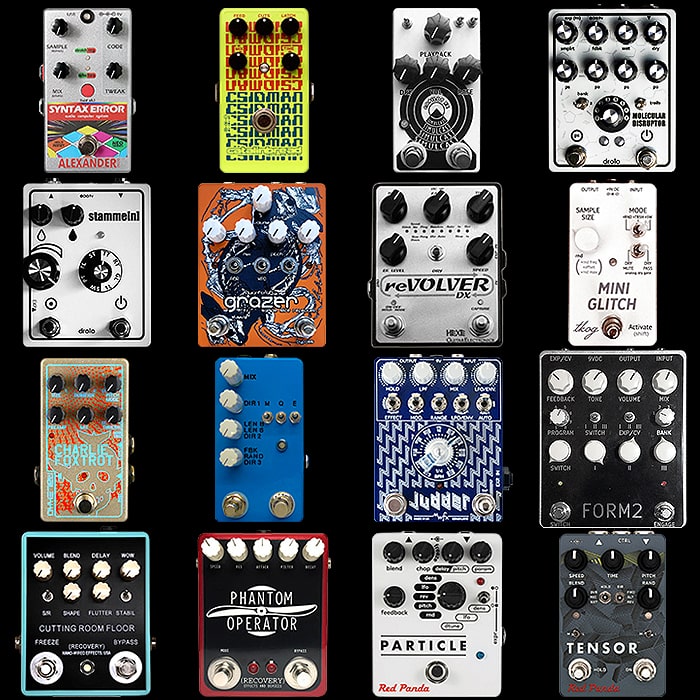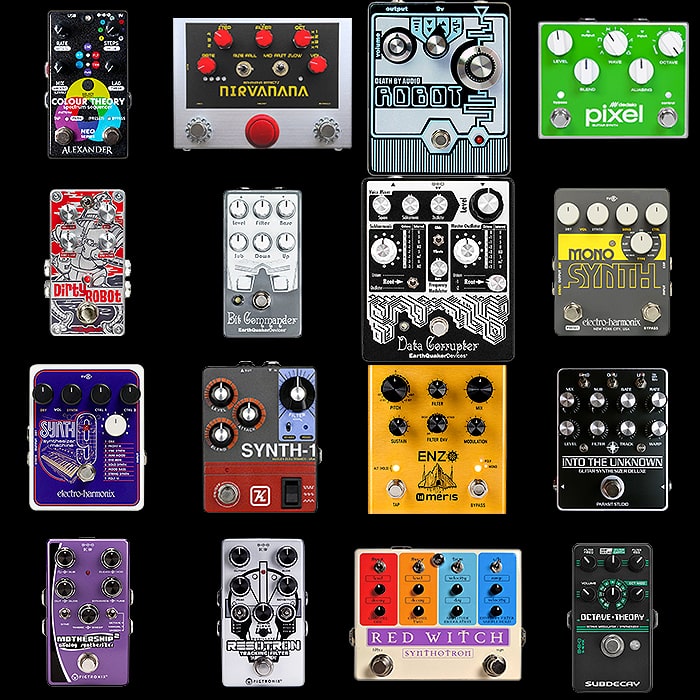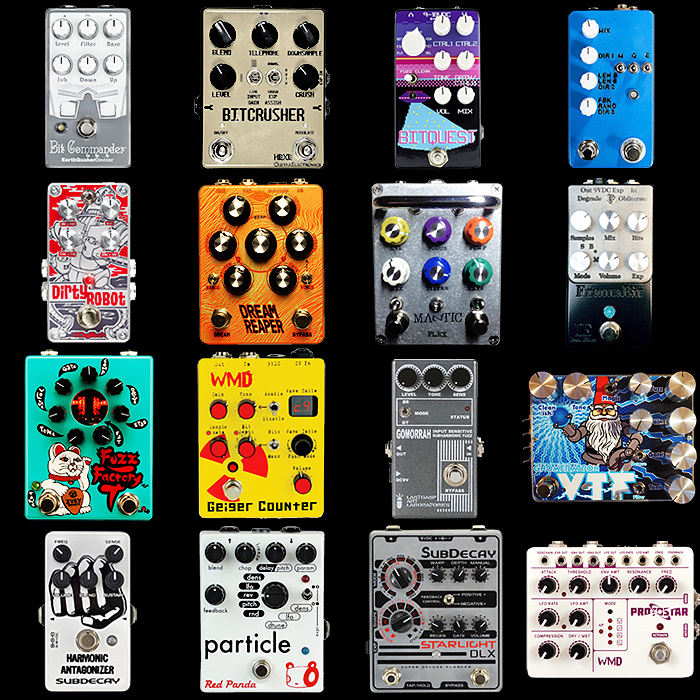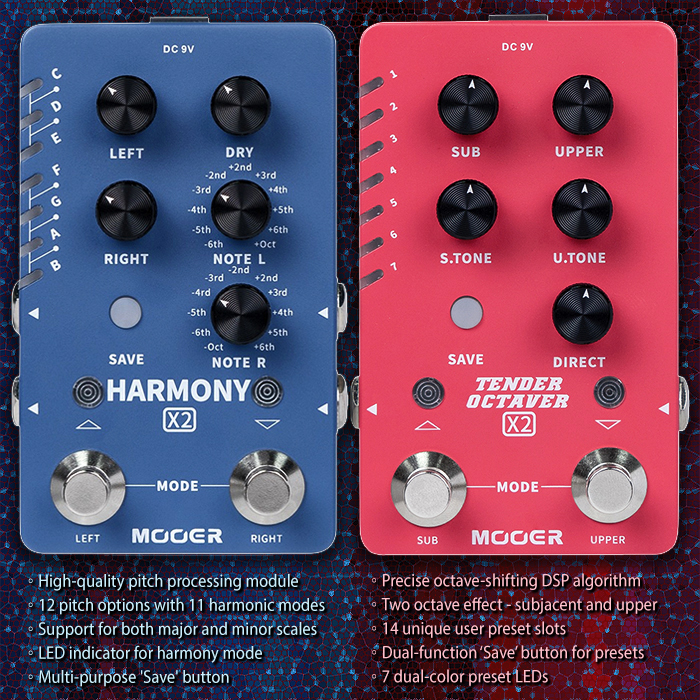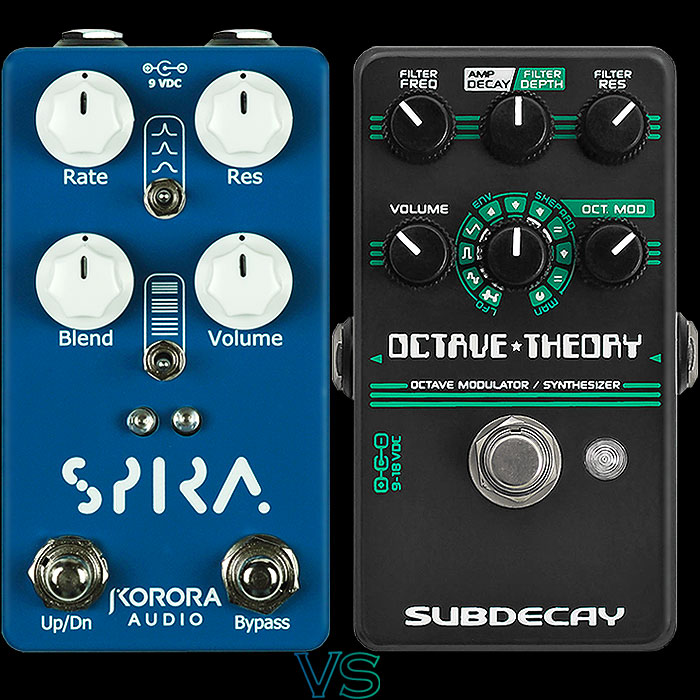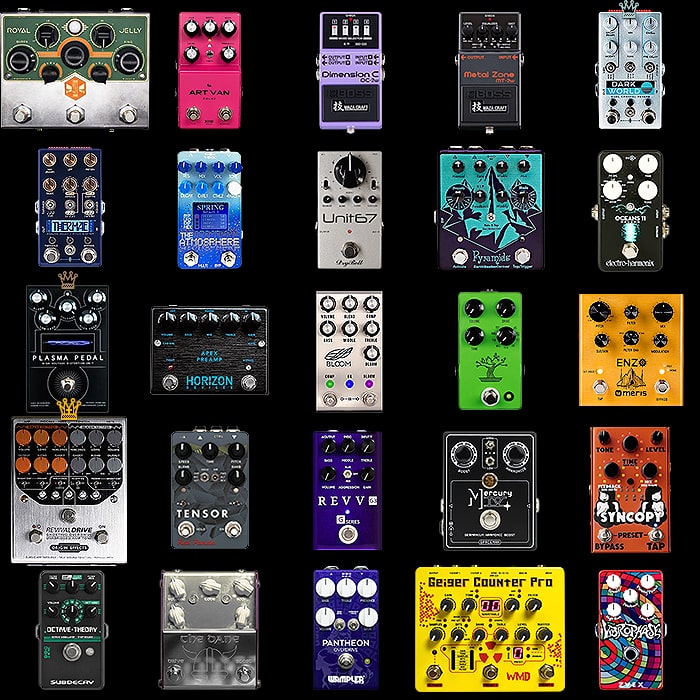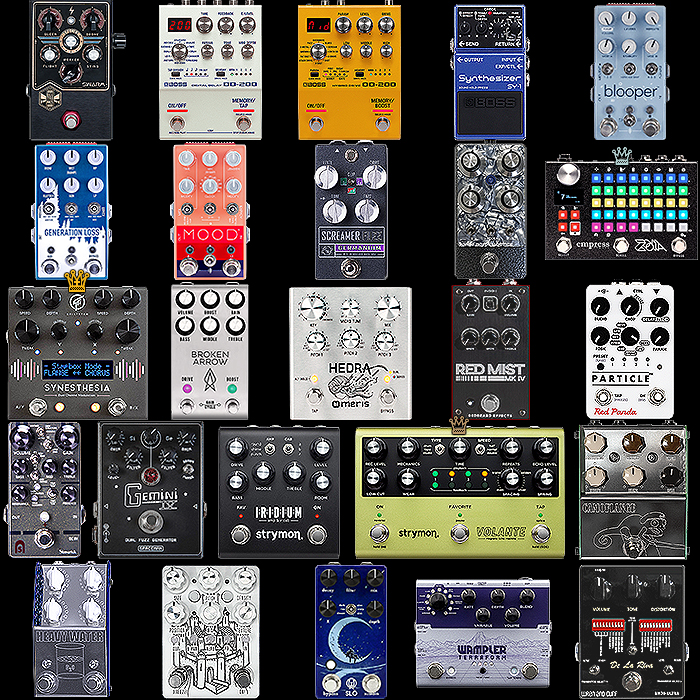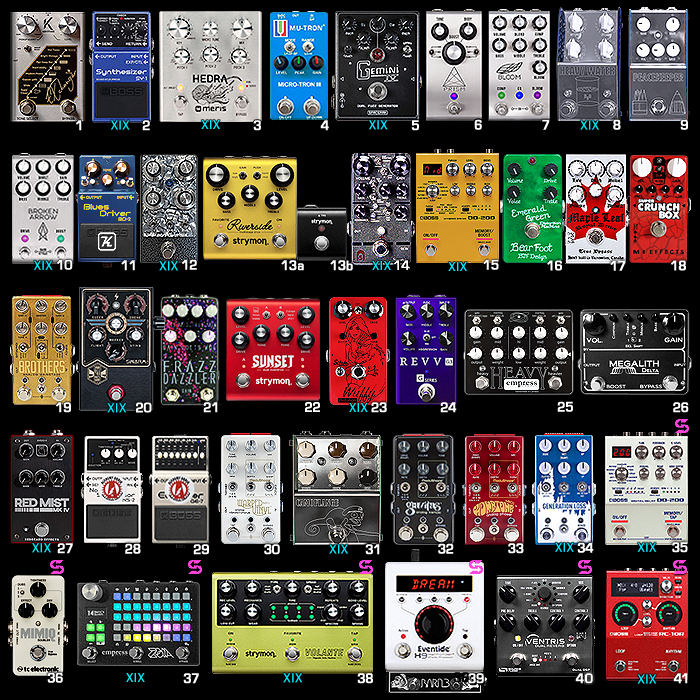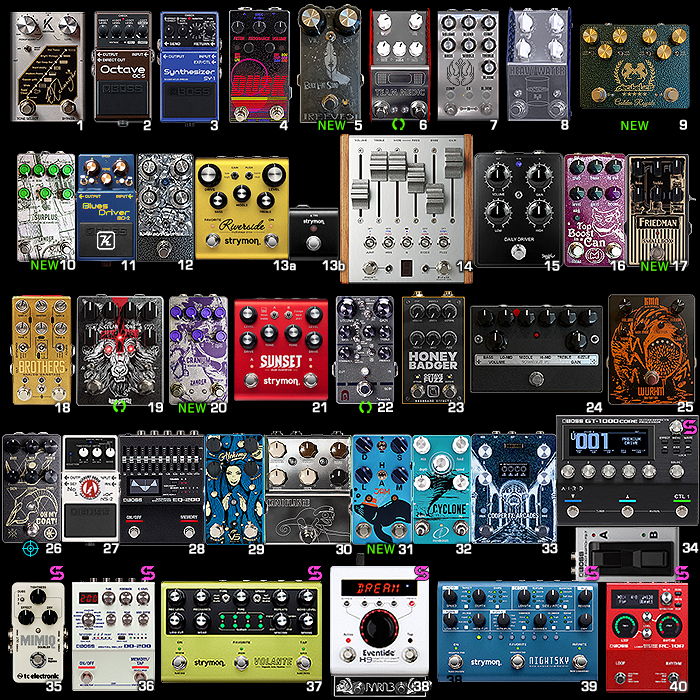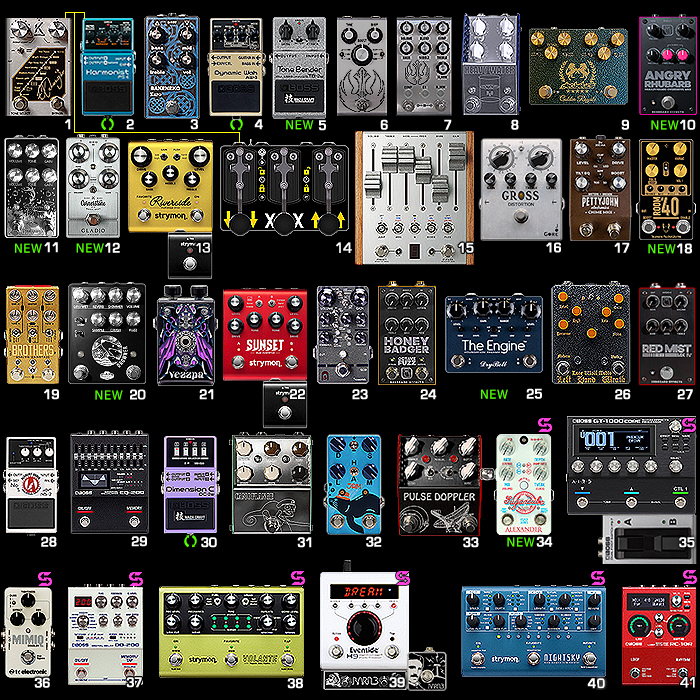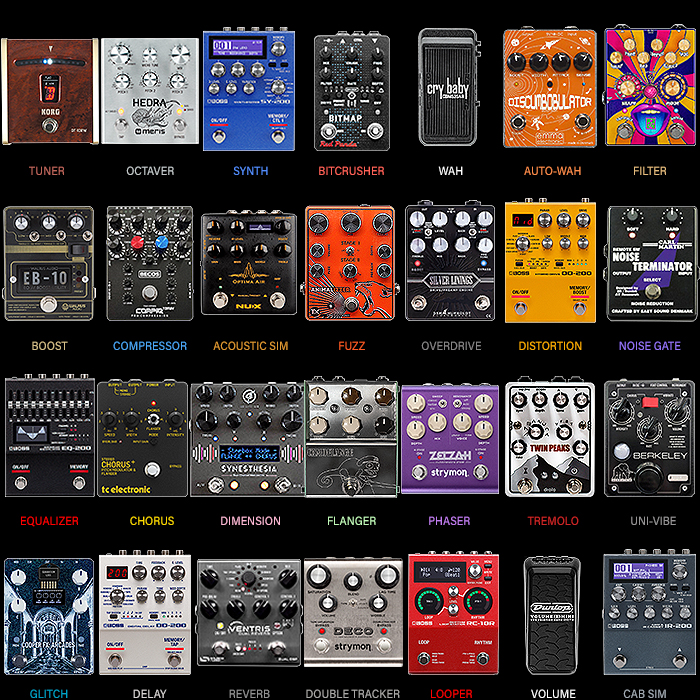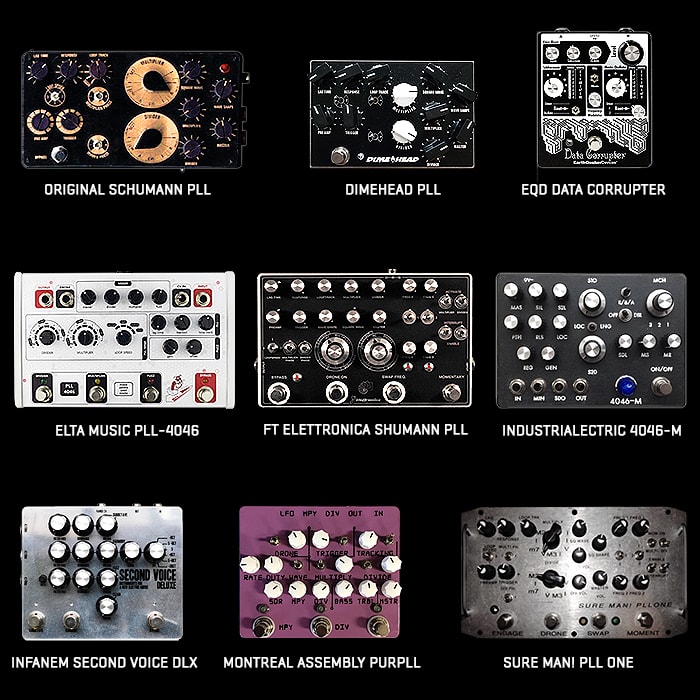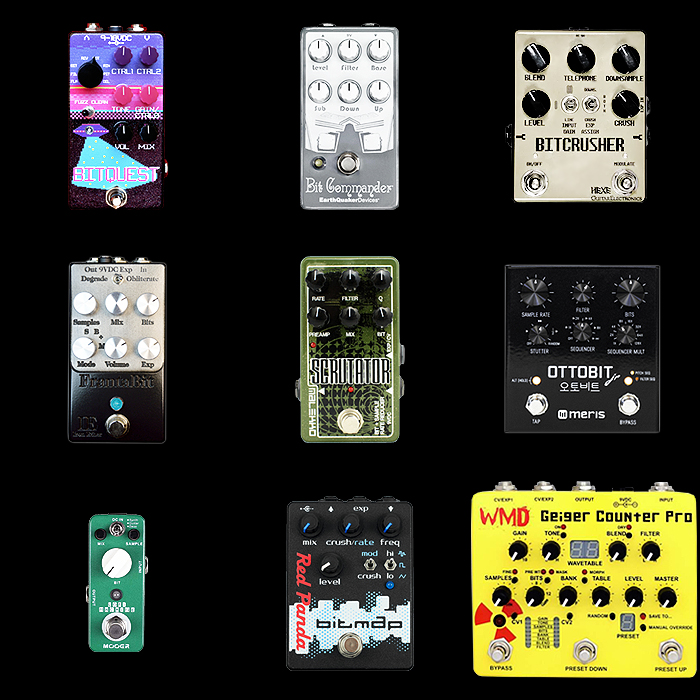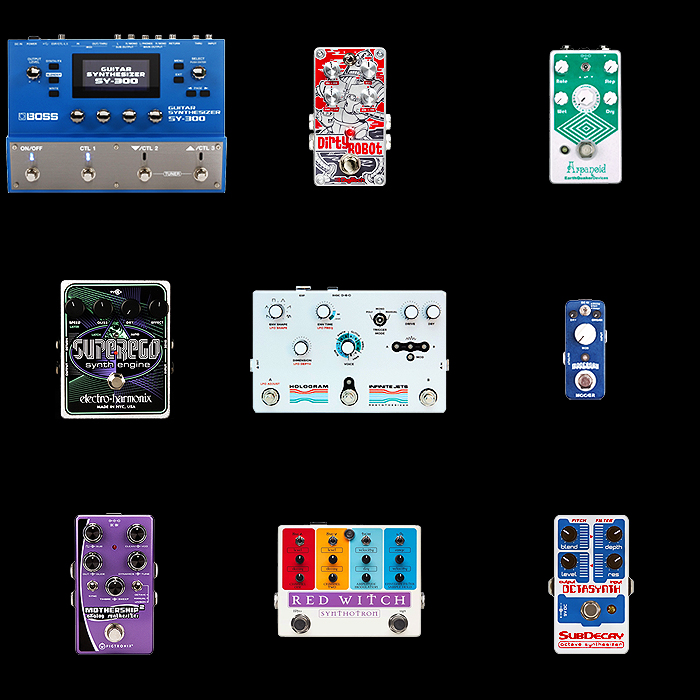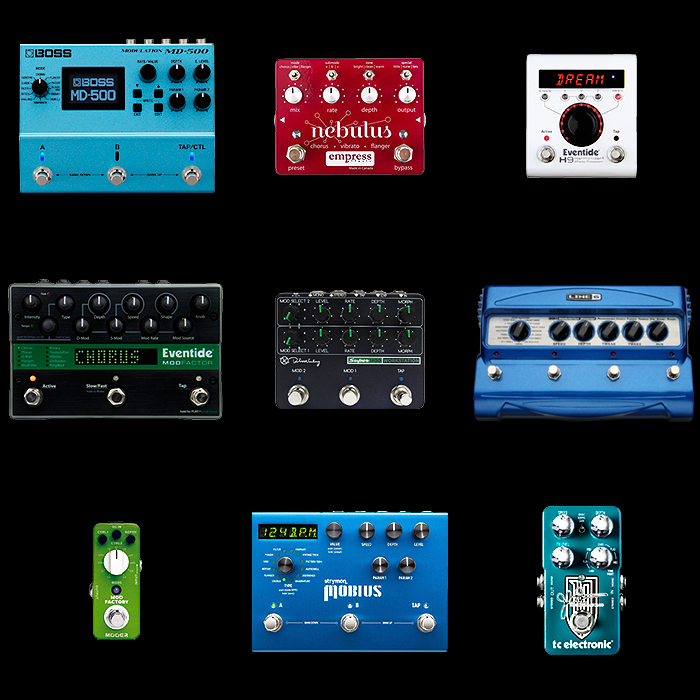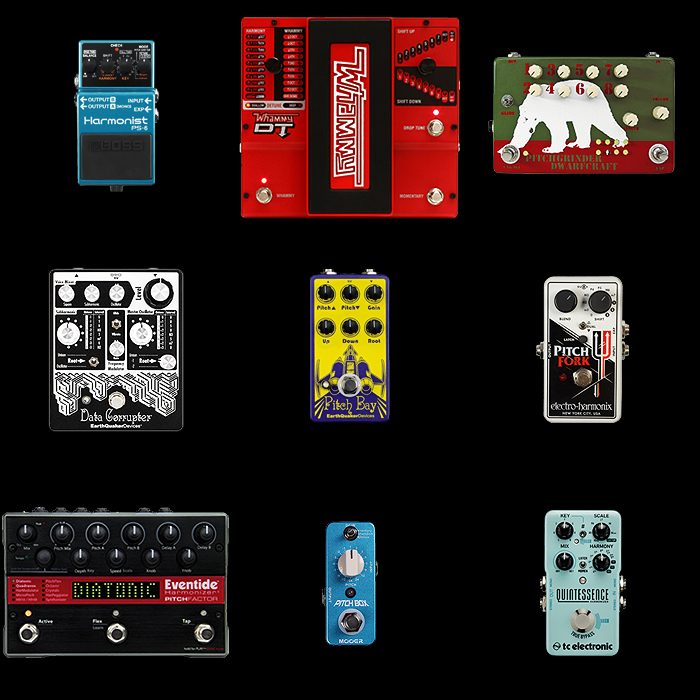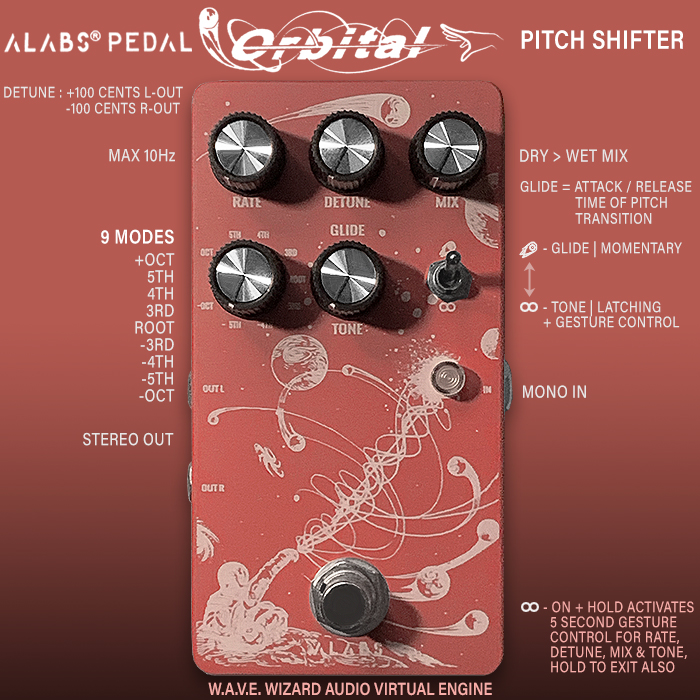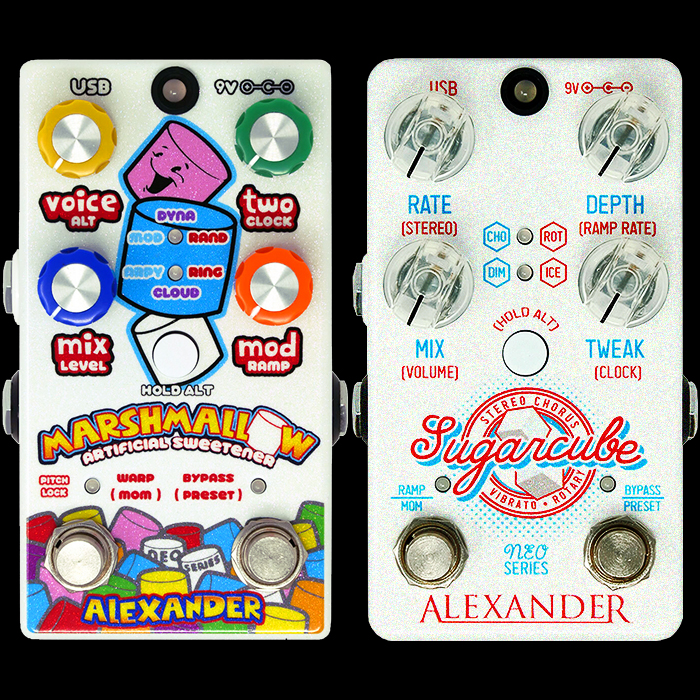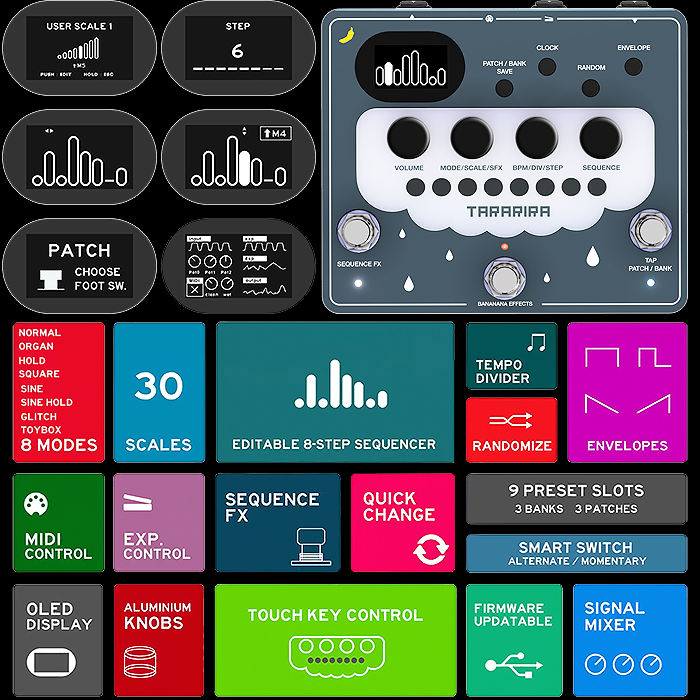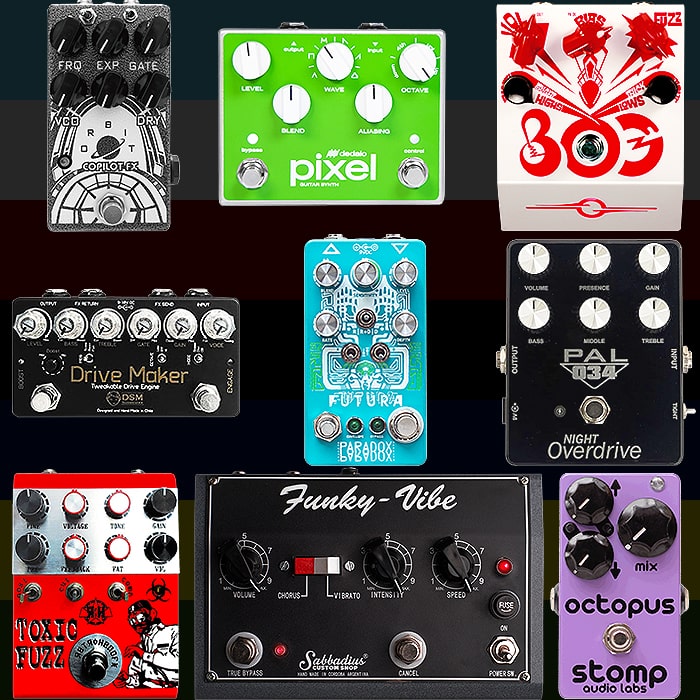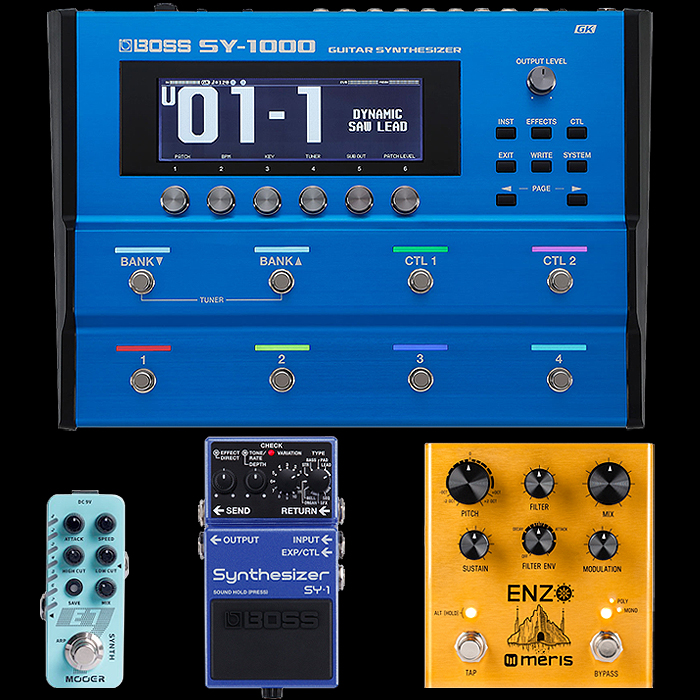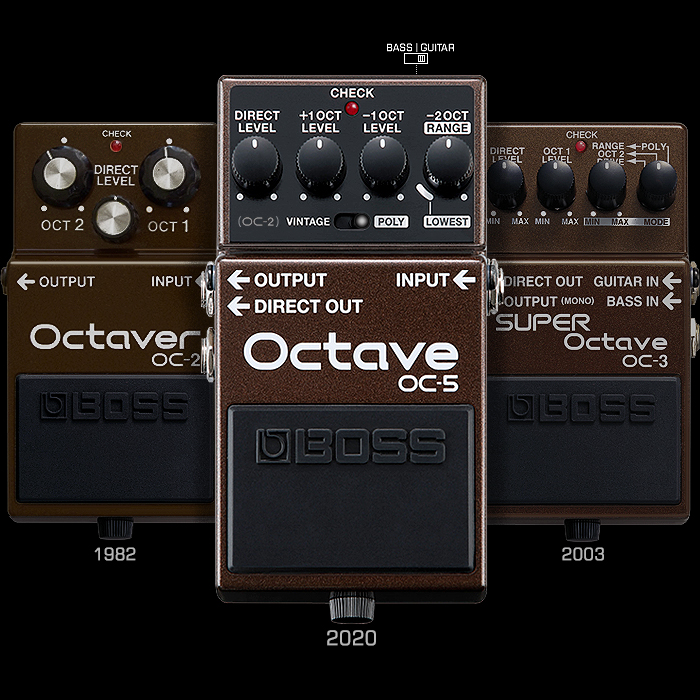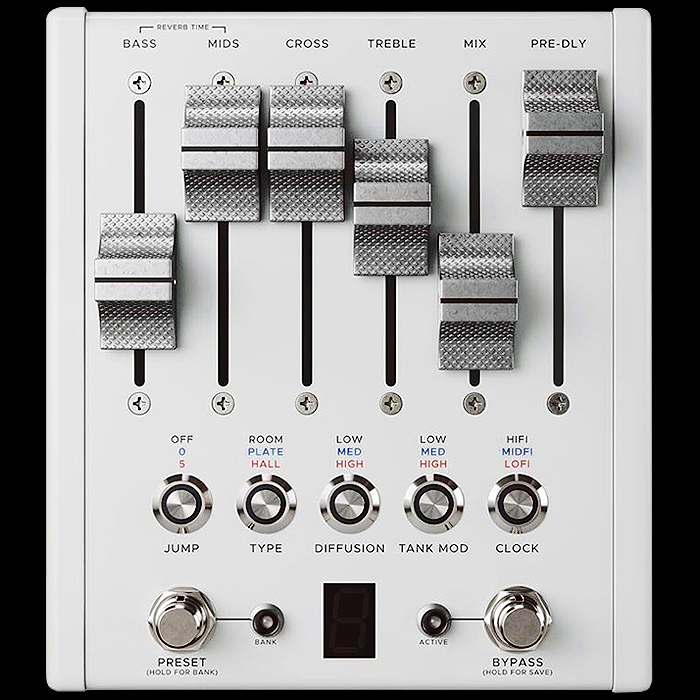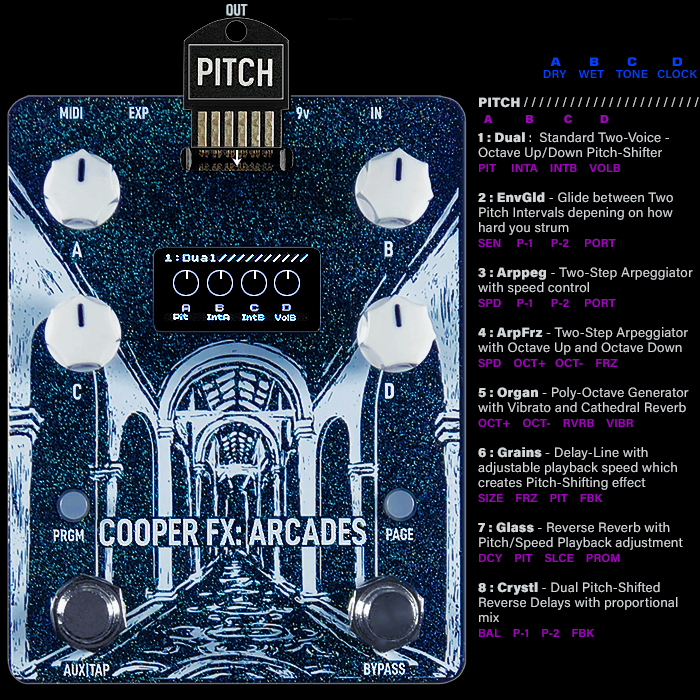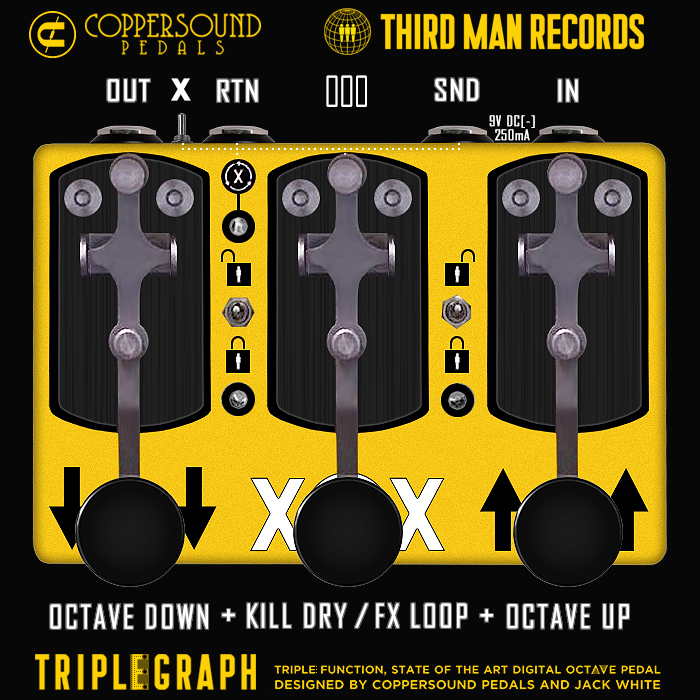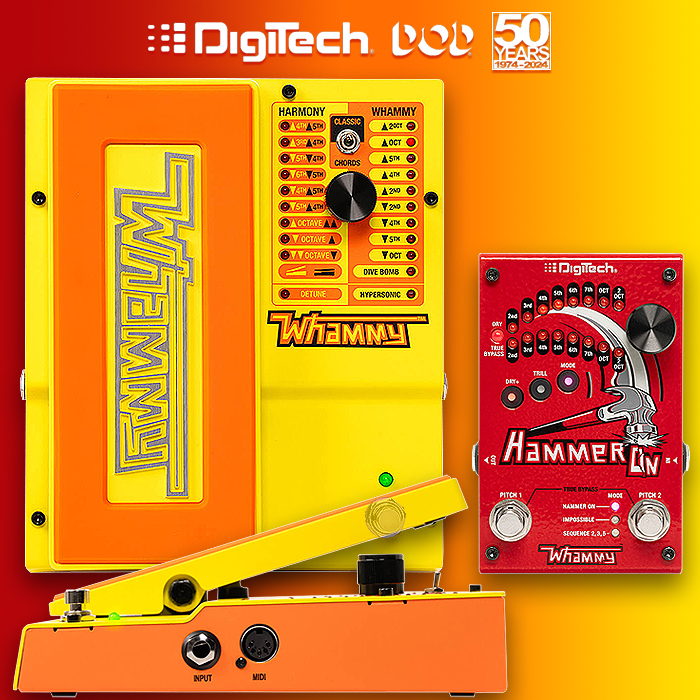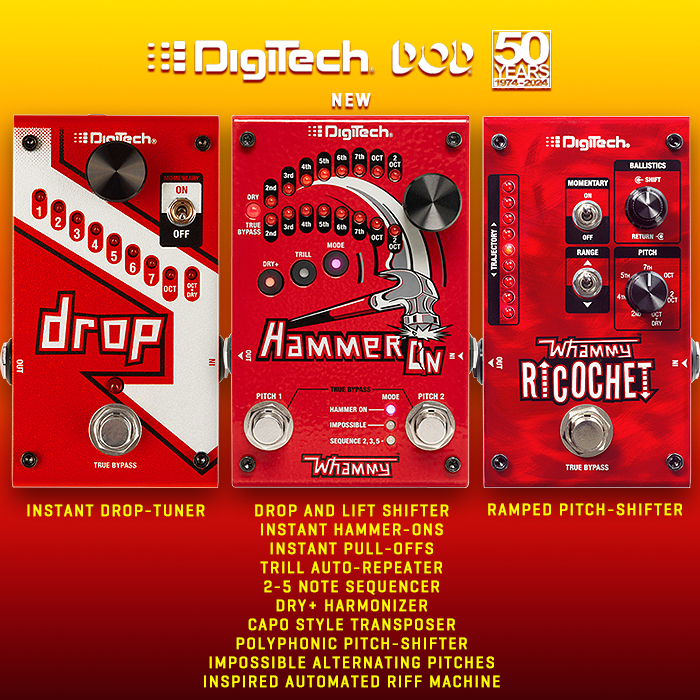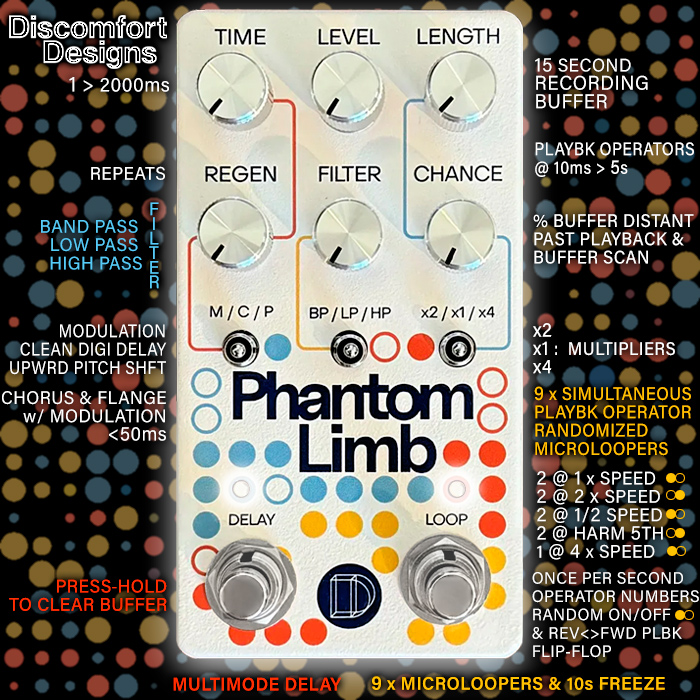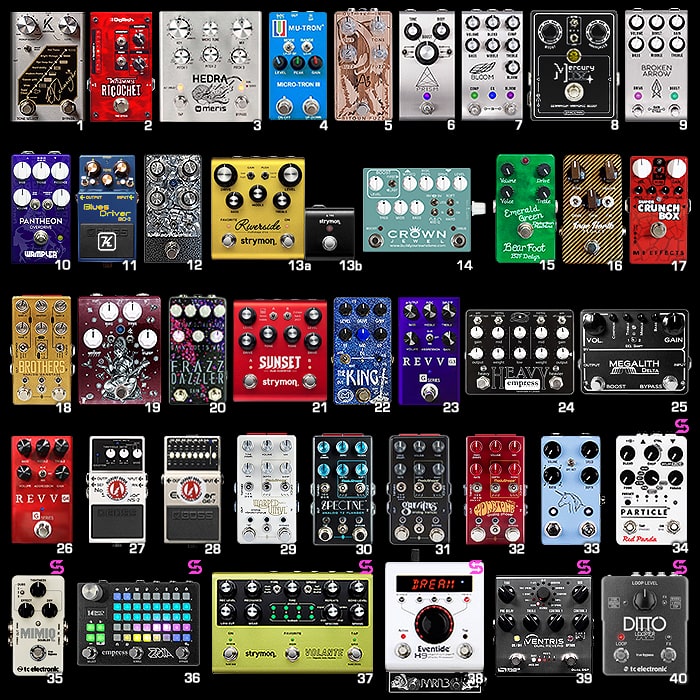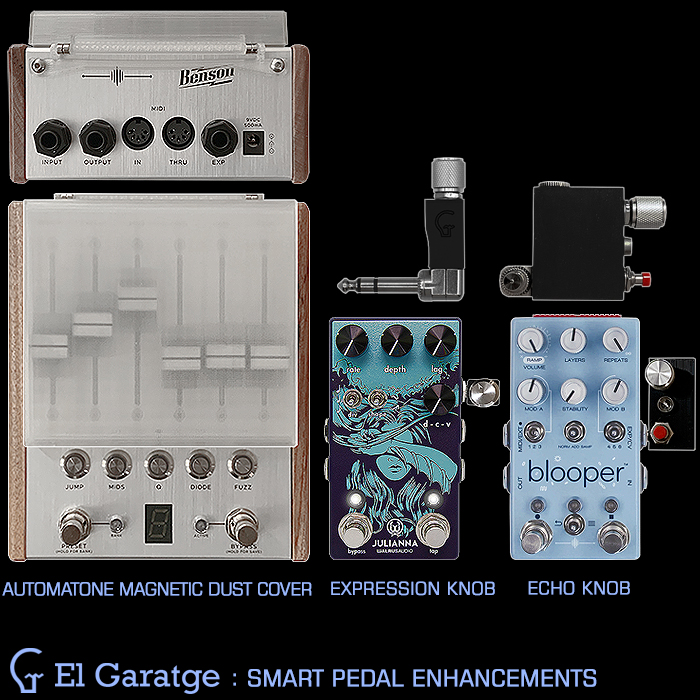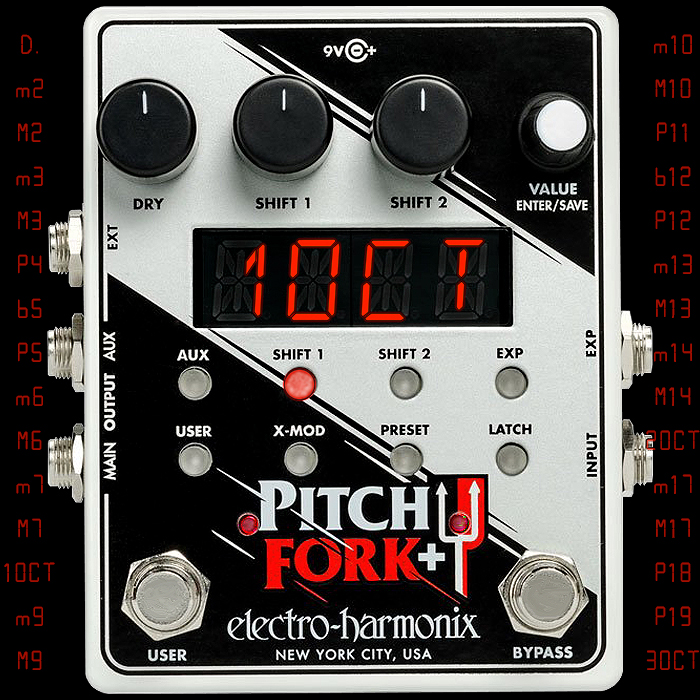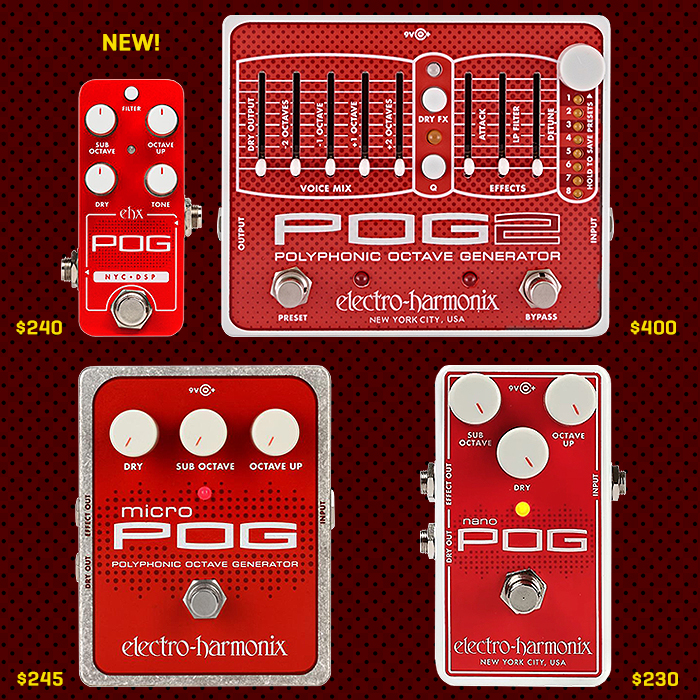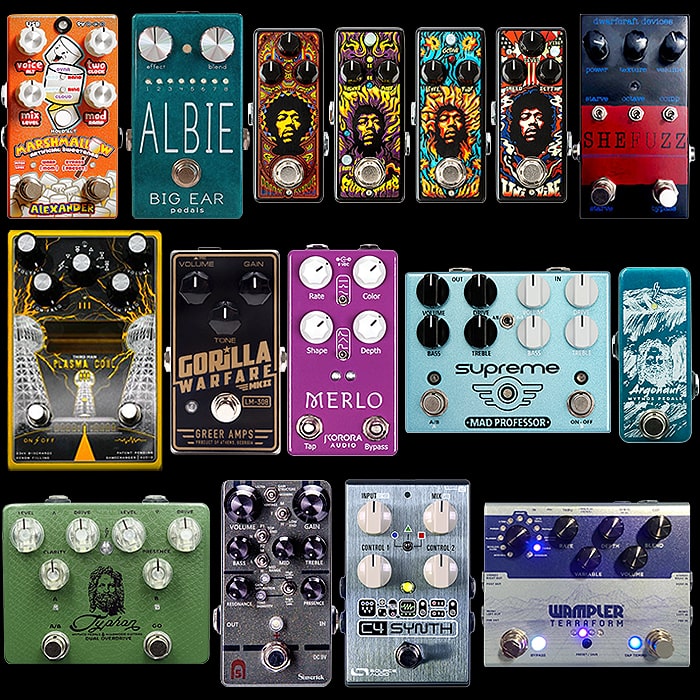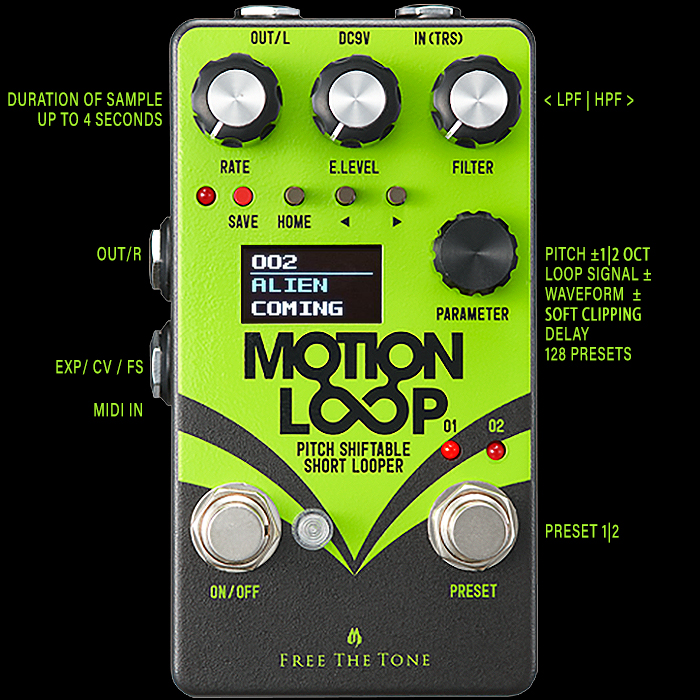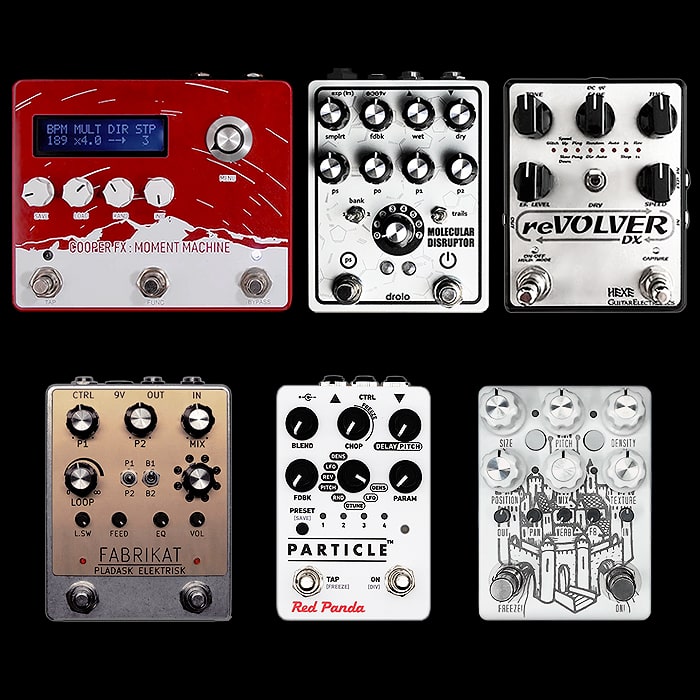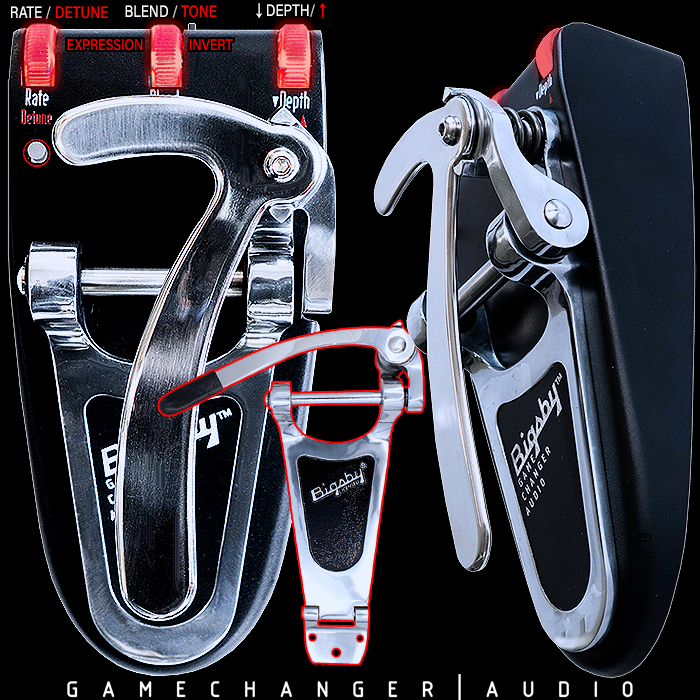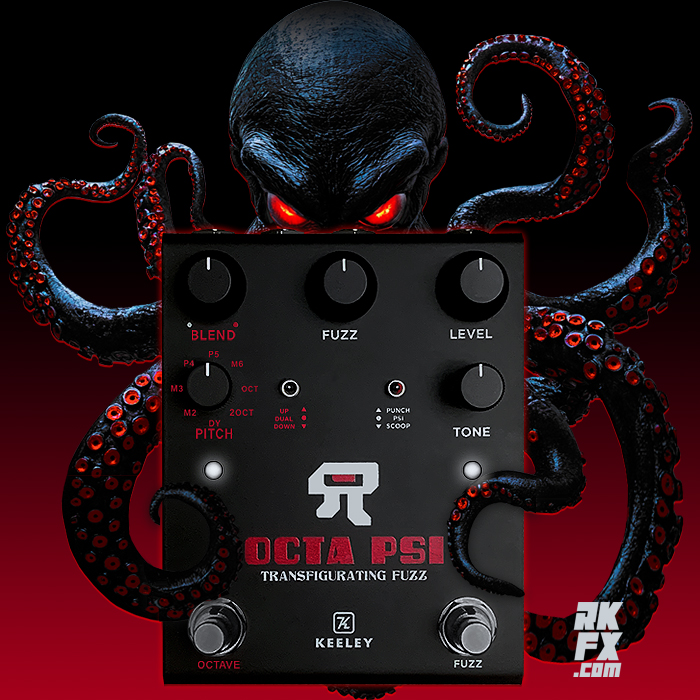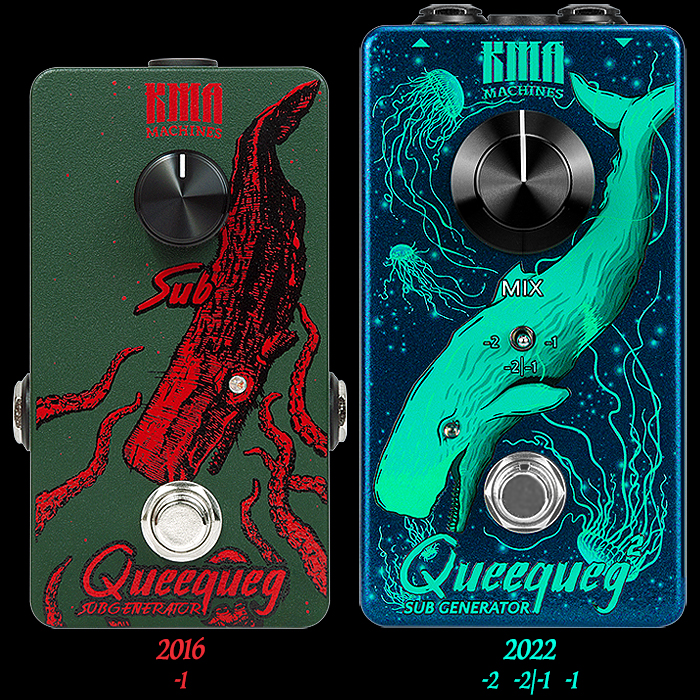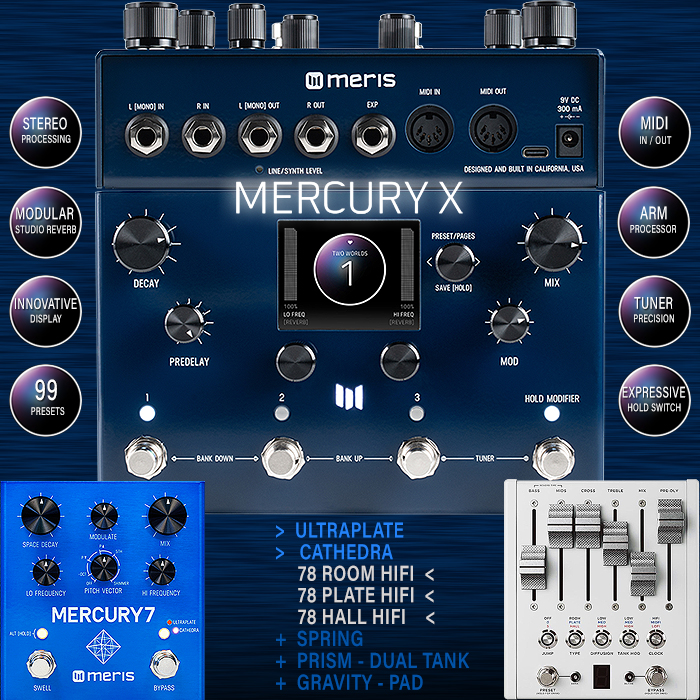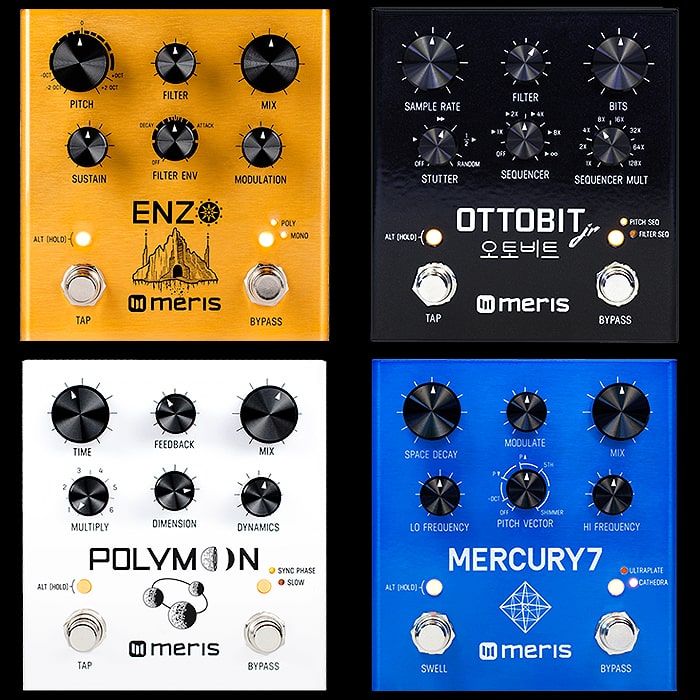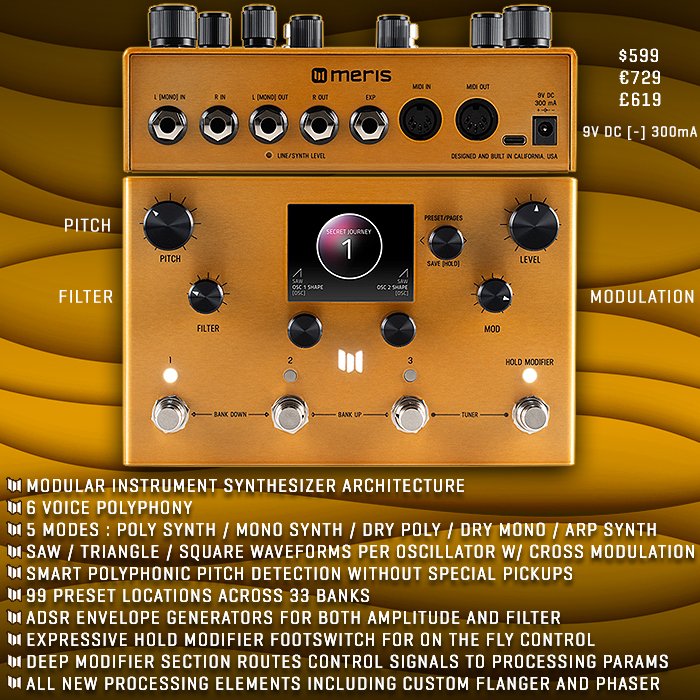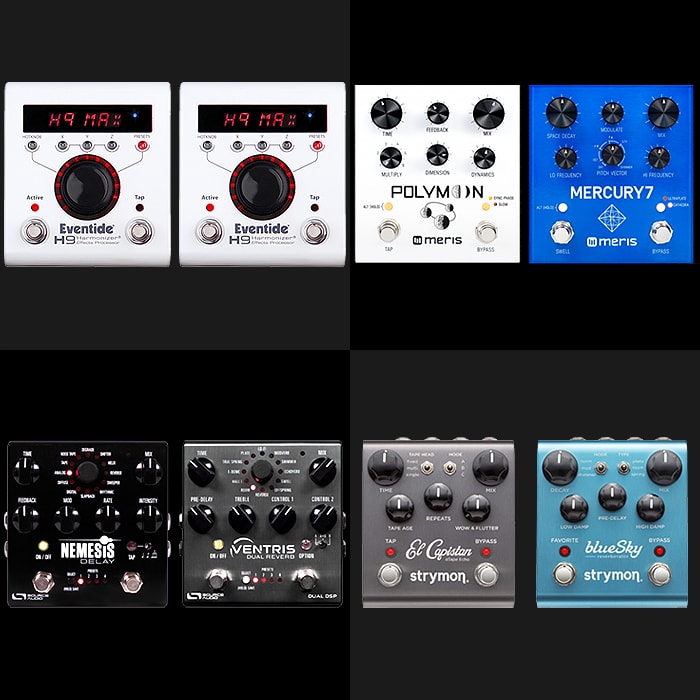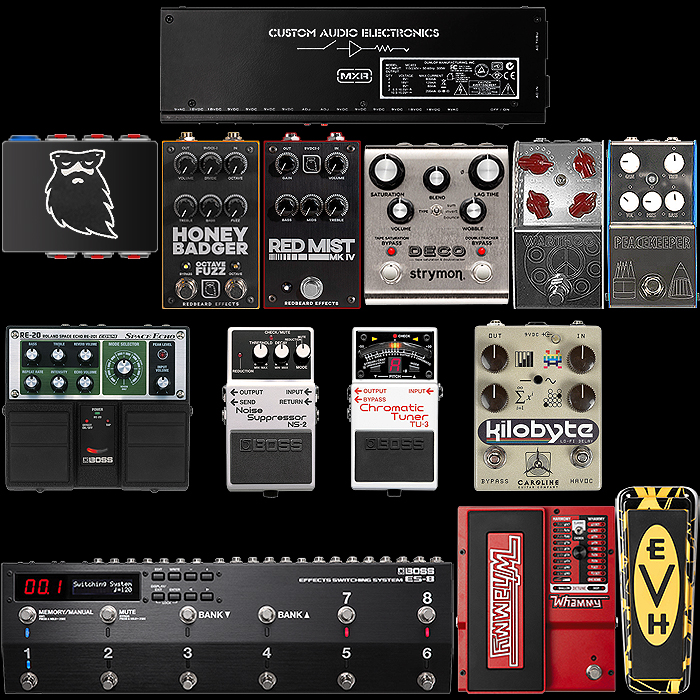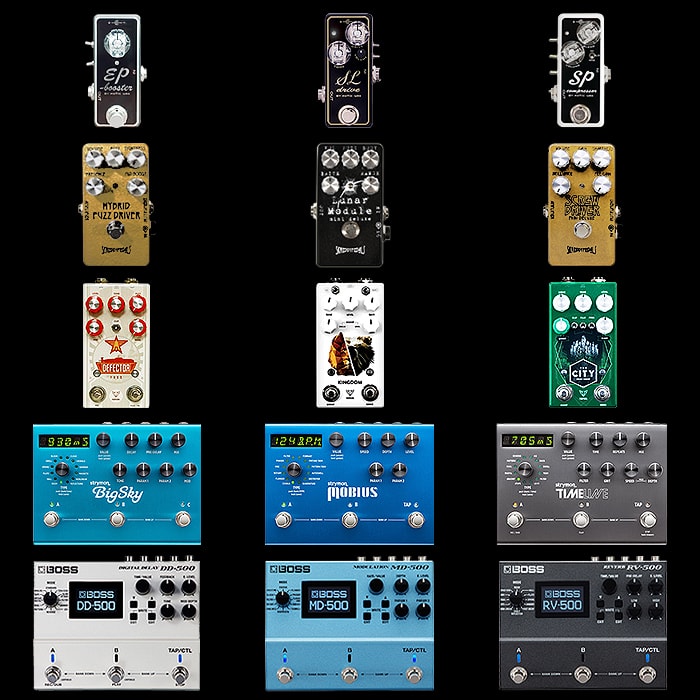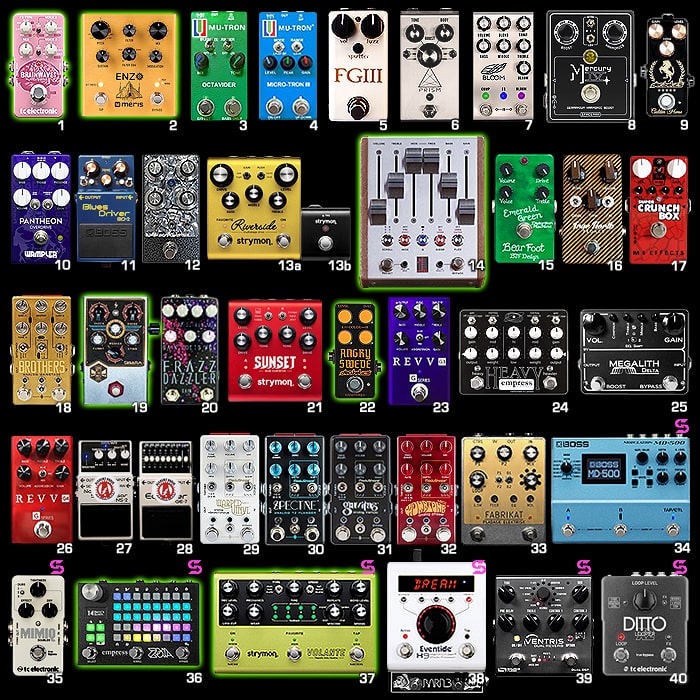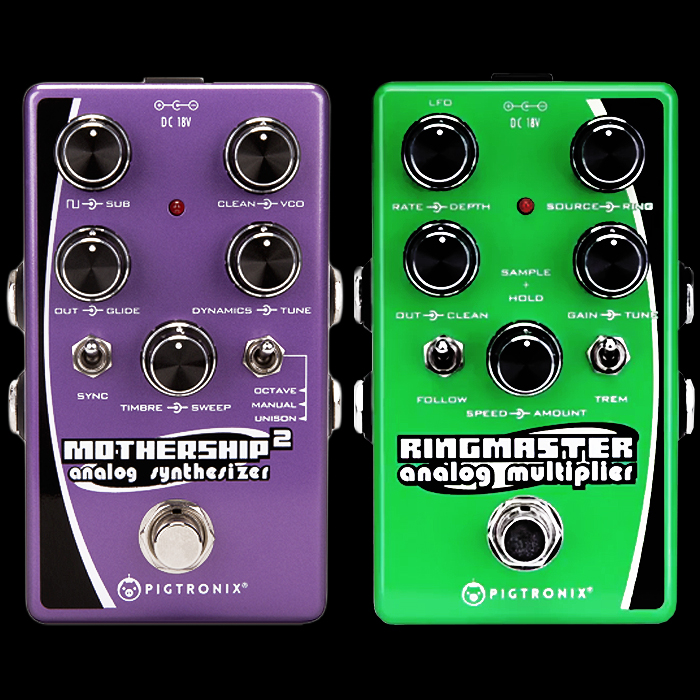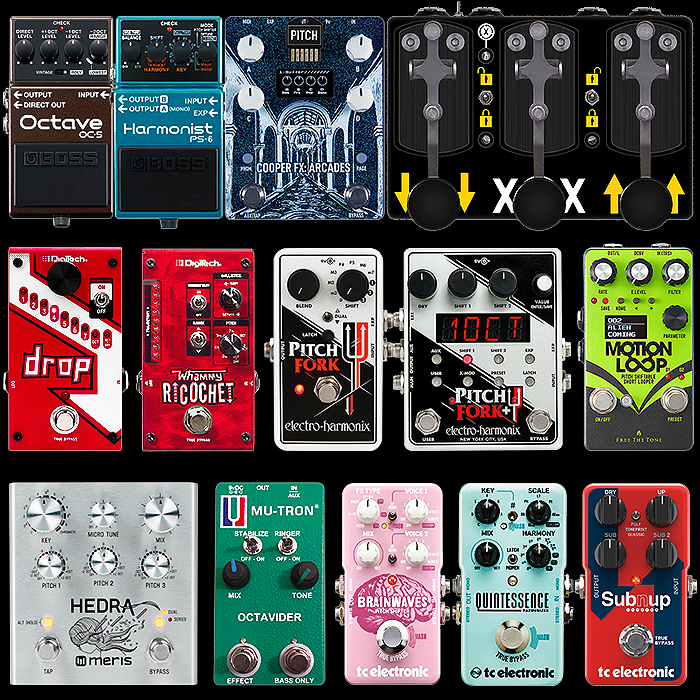Meris's New Hedra 3 Voice Rhythmic Pitch Shifter is its most accessible pedal yet and is the first to claim a fixed slot in my Pedal-Chain
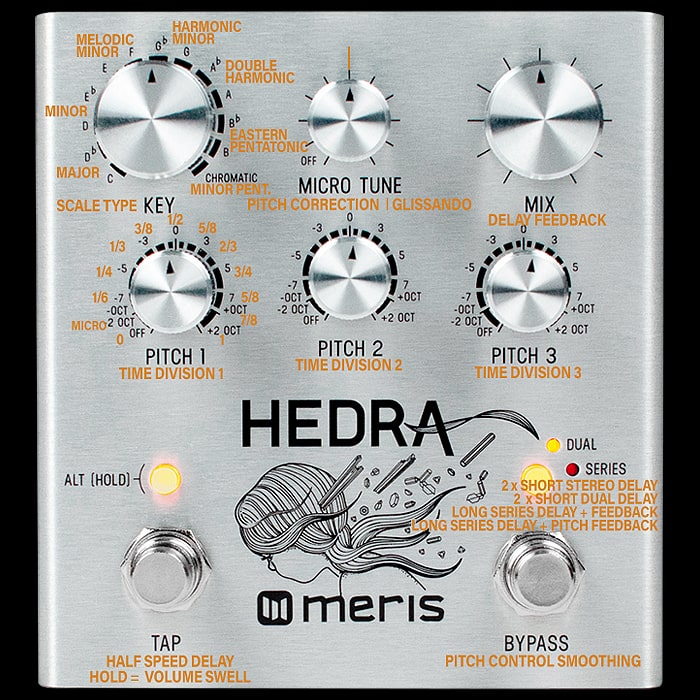
As a follower of Juan and Nick’s Pedals and Effects YouTube Channel - I’ve been aware of Meris from day one, and have showed interest in and featured all of its pedals on this site at various times. I was the one that stated that Meris effects were probably more like weekend sportscars rather than daily runarounds, and I’ve had a Meris or two on my wishlist for a while. I came very close to acquiring an Enzo at one stage, but in the end decided that it wasn’t quite right for me. While I’ve always been on the cusp of acquiring a Mercury 7 Reverb - as a rotation pedal on the current Source Audio Ventris slot, but that hasn’t conspired to happen quite yet either - but most definitely will at some stage in the not too distant future.
I recently acquired the new TC Electronic Brainwaves Pitch Shifter - and while it’s a smart device it’s not without issues either - it’s pitched sound is nowhere near as clean as that achieved by either EHX or Meris here, and I’ve found several aspects of its use to be glitchy - to the extent that I’ve gone back to my DigiTech Ricochet for the Whammy style features I used the most. I’ve always had some sort of octave style pedal in my chain too - currently the Analog Mu-Tron Octavider, and I’ve decided 100% that I’m going to put the Hedra into that slot now as my main Octaver / Pitch Shifter of choice.
At its core the Hedra is a 3-Voice Pitch Shifter with a delay line on each voice - that you can manipulate in several ways. The three second-row Voice dials each allow you to set values from -2 to +2 octaves with all the key in-between steps - when you activate the Alt function on each of those dials you can set a delay on each as a proportion / fraction of time - e.g. first one at 1/4, second at 1/2, 3rd at 3/4 etc. for progressive transitions / triad arpeggiation.
The top row dials are Key / Scale Type, Micro Tune and Mix respectively - note that I’ve highlighted all the key Alt/Secondary features in orange text on the above visual. So for the first dial you set the root note of the scale and the type of scale applied - from 7 types available. Next you hit the Micro Tune - the left hand portion of the dial corresponds to Pitch Correction - where just before the half way mark you are on full auto-tune mode which locks you into the sequential note of the scale almost whatever you play - while from 12 o’clock onwards you apply glissando to the pitched sequences so the notes increasingly glide / transition smoothly into one another. Finally the Mix dial allows you to mix in your Dry to Wet ratio, and the Alt feature here kicks in the amount of Delay Feedback. So this is the essence of the pedal - pitch shifting with delay and control over the transitions.
The pedal covers 4 different modes - 2 Dual and 2 Series : 2 x Short Stereo Delays with Stereo Output | 2 x Short Delays as Dual Mode | One Long Series Delay with Standard Feedback | One Long Series Delay with Pitch Shifted Feedback. You press the mode button for either, both or neither of the twin LEDs showing to access each mode.
The dual footswitches also have Alternative modes - the Tap switch gives you Half Speed on Delays, and if pressed and held enables momentary Volume Swell. While the right-hand ByPass footswitch enables Pitch Control Smoothing.
If you look in the manual you will see a further plethora of global controls / midi controls / system defaults etc. as you would expect for a typical Meris pedal. My pet peeve here is still the same as for all the others - in that you don’t have proper onboard presets here. I think there should be Stone Deaf FX Tremotron Style presets that you can footswitch on the solo pedal - but if you wish to avail yourself of presets you will need to acquire/use an additional midi footswitch or midi switcher / controller of some description.
The core basic functionality here is really very straight-forward, you don’t need to use all the bells and whistles - you could just use it as an octaver of sorts and ignore all the additional features onboard. But as usual, Meris is a godsend for the creative player in being able to do very specific creative flourishes not available on other comparable devices.
All these different Alt function can lend a certain degree of complexity to these Meris pedals - but I feel that the Hedra can also perform the basics here with ease and without obfuscation. It would have been nice to have onboard presets here, but on this type of pedal it’s not a deal-breaker for me.
I’ve fast realised on the various Glitch pedals I am still trialling that it takes so long to dial in a perfect tone - that those pedals just aren’t properly long-term viable without onboard presets - certainly not for live playback. Meaning that the only one of my current crop that passes muster as such is the Red Panda Particle 2 - with its 4 onboard presets - would that Meris could follow suit here!
Key Specs and References
- Conversion : Premium quality 24 bit A/D and D/A
- DSP : 32 Bit floating point DSP hardware
- Sample Rate : 48,000 Hz
- Input Impedance : 1 Meg Ohm
- SNR : 115dB
- Frequency Response : 20Hz - 20kHz
- Max Input Level : +9 dBu (Instrument) | +12.5 dBu (Line)
- Signal : Premium low noise Analog signal path throughout
- Path : Digitally controlled Analog Dry path for wet/dry mix
- Circuit : Analog Devices JFET input circuitry
- ByPass : Selectable True Bypass (Relay) or Analog Buffered Bypass
- Chassis : Durable transparent coated brushed aluminuim
- Power : Current draw < 150 mA (9V DC Centre-Neg)
- Dimensions : 4.25″ wide x 4.5″ long x 2″ tall (108mm x 114mm x 51mm)
- Weight : 14.6 ounces (0.41kg)
Final Thoughts
While I could not see the Mercury 7 Reverb or Polymoon Delay being my main / core pedals in those areas (more like understudy alternatives) - this certainly changed with the Enzo, and even more so with the Hedra now - which I see as the best fit pedal for my octave / pitch-shifting needs.
I still stand by all my earlier observations and reservations - and the genuine need to really have onboard footswitchable presets here. You can spend an age dialling in the perfect tone, and not having the means to easily preserve and recall those settings is a real shame. The Stone Deaf FX Tremortron and Syncopy showed the way forward - as did the recent Red Panda Particle 2. When you have as many secondary modes as you do here - and have tweaked say 12 combinations of settings (6 dials x 2) - not having an easy means of preserving and recalling all that is a real shame.
Other than that - this pedal pretty much exceeds expectations for what is possible for such a genre. Meris are the masters of invention here - coming up with really clever complementary features and functions - proper creative flourishes to elevate their pedals into an entirely different stratosphere.
I feel that everything I have seen of this pedal so far seals the deal for me - despite my minor reservations on the presets thing. I feel this is about as good as you're likely going to get for a Pitch Shifter style pedal. Not to forget the Cooper FX Moment Machine either which has a whole other degree of complexity and possibilities - but its combination of size, interface feature set and accessibility don't appeal to me quite so much as the Hedra does.
For what it does - this is the neatest pitch-shifter / octaver pedal available anywhere - and finally the first Meris to get my full buy-in.
One damp note here also is that USA customers can purchase directly from Meris - while we overseas types need to wait for the pedal to come into regional distribution - supposedly around June 1st. I would have liked to be able to place an order with Meris - like I do for near enough every other brand - I've also noted on several occasions that Meris pedals are a touch over-priced in the UK say versus Strymon - where $299 usually equates to £299, but for Meris $299 = £319 - another pet peeve!
As a final addendum I have often questioned whether Meris have ever thought to use 6 dual-concentric knobs rather than all those Alt functions - surely that would make these pedals even more usable - if you did not have to tweak and return the key dials back to relevant positions once secondary effects have been set?

